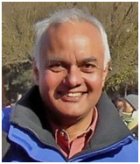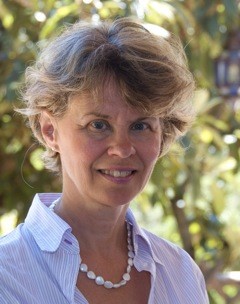1818 Society British Chapter Contact Details
Continuing Care
We are pleased to have David Potten as ‘Benefits Coordinator’ on the British Chapter’s Board.
The Society does not have the resources to provide in-depth advice to individuals but is willing to provide basic information and sign-posting to the types of support services that may be needed when colleagues face health and bereavement problems.
A much praised Guide on Elderly Care was produced in June 2013 by David’s predecessor, the late Evelyn Watson. It provides useful information on options and choices related to the different stages of elderly care and contains links to a variety of websites related to various aspects of care.
This Information was last updated in October 2024, and will be updated again when appropriate. A copy of the Guide is available to download for reference.
click here to download a copy
See also The 1818 Society’s “Handbook for Survivors” dated November 2023.
click here to download a copy
Note: Please send any enquiries to David Potten via the email link under ‘Contacts’ on this website.
Spring Reunion and AGM, Llandudno, 11 – 13 May, 2012

The annual Spring Reunion and AGM were held this year in Llandudno, North Wales, established by the Mostyn family as a Victorian seaside resort. Sixty nine members and guests attended, including visitors from the Netherlands, France, Germany and the USA. The reunion was held at the St. George’s Hotel, located on the esplanade and overlooking a wide beach; it was one of the first hotels to be built in the town and boasted of a new invention – a lift. Today, the recently renovated hotel has elegant function rooms and comfortable bedrooms and provided an excellent venue.

The programme of activities was developed with the help and local knowledge of John and Monica Peberdy, who live in Anglesey not far from Llandudno. On Friday afternoon, after check in, a group of about 40 took Britain’s only cable tramway to the summit of the Great Orme, a rocky promontory rising to about 500 feet (150 meters) above the town. Blessed with a fine afternoon there were clear 360 degree views from the top. There is a Bronze Age copper mine on the Great Orme and the more energetic stopped to explore the mine before walking to the summit. Members who did not take the tram had a guided walk around the town with a very knowledgeable guide, who not only pointed out buildings of interest but provided a good summary of the development of the town.
On Saturday the sun shone all day so the weather for a visit to Bodnant Gardens, a nearby National Trust garden, could not have been better. Rhododendrons and azaleas were a blaze of colour providing a stunning contrast to mature trees that opened vistas to the background of mountains.
Members at Bodnant Gardens




There was a brief stop for lunch in Betws y Coed, a town famous as a base for climbers preparing for the high peaks in the Himalayas. Most members took the opportunity to view a short film of a flight over Snowdonia as seen by a peregrine falcon. The coach then took us over the Llanberis Pass, a narrow route through the northern part of Snowdonia.The next stop was at the National Slate Museum. Slate was an important industry in the 19 th century, with Welsh slate exported all over the world. The museum sets out some of this history but the highlight of the visit was a demonstration of slate splitting, done by hand in the traditional way. The demonstrator was not only remarkably skilful, but had an entertaining sense of humour.
Receptions and dinners on both Friday and Saturday nights provided plenty of opportunity to catch up with news of old friends. On Saturday night Dr. Robert Jones provided a programme of magic, illusions and mind-reading that kept us all amazed. His expertise as a magician has been recognized by the British Magic Circle, all the more amazing because Dr. Jones’ day job is as a dentist.
The more formal business of the weekend was discussed at the AGM, held on Sunday morning. Mick Nightingale stood down as Chairman of the British Chapter and the meeting applauded his many years of service to the Society. For the next year his place is taken by Alan Roe. Two new Board members were elected: Evelyn Watson and George Faillace.


Reforming Foreign Aid: Reinvent the World Bank
16th November 2017 1:30 – 3:30pm – World Bank Group Office – Millbank Tower, 21-24 Millbank, Westminster, London SW1P 4QP

Dr. Inder Sud is currently president of the 1818 Society. He started his career at the World Bank where he held a variety of management positions in operations, finance, and policy. He pioneered the use of the World Bank’s partial-risk guaranty for public-private partnerships in infrastructure, and was also involved in the Bank’s early work providing the basis for re-establishing its relationship with China. Since retiring, he has taught international development at graduate level at Duke and George Washington universities and consulted for a number of organizations.
In his book by the same title, Inder argues that aid has been successful in promoting development only in those few countries in which the leaders are committed to development. Successful countries are those which could utilize foreign aid to support their own, home-grown, national development.
He believes that the World Bank can take a lead in setting a new path for delivering foreign aid, if it undertakes serious reforms. Among his recommendations are: strengthening governance; transparent, qualification-driven process for selection of president with proven leadership as the key criterion; increased autonomy for the Independent Evaluation Group; performance-based budget support instead of project lending; and a leaner Bank as the true knowledge bank.
Inder’s thoughtful presentation prompted a lively discussion.
This was the eleventh of the special Alumni Seminars arranged by the British Chapter of the 1818 Society, and the fourth in partnership with DFID. It was kindly hosted at the World Bank Group office at Millbank
The Future Role of Multilateral Development Agencies
31st October 2016 – Department for International Development, 22 Whitehall, London SW1A 2EG
With agreement on the new Sustainable Development Goals (SDGs) in September 2015, debate has shifted as to how these will be delivered and the role of multilateral agencies in the process. DFID is currently conducting its own multilateral aid review, which will look at questions of effectiveness, cooperation between multilateral bodies and how and where HMG can best invest in the multilateral system to achieve the greatest impact on the SDGs.
As we look ahead, it will be valuable to draw on the experience and expertise of those who are still working, or have worked in the multilateral system in the past. The seminar would bring together alumni with DFID staff currently responsible for policy in this area.
Questions to be addressed: how have the original roles of multilaterals changed over time and in what evolving political context? What contribution have they made in delivering global development goals? What lessons can be drawn from experience for their future role in delivering the SDGs?
Keynote speech: Sir Suma Chakrabarti (President, EBRD and former Permanent Secretary, DFID).
Other speaker: Nick Dyer (Director General, Policy and Global Programmes, DFID))
Chair: Myles Wickstead.
This is the 10th of the special Alumni Seminar arranged by the British Chapter of the 1818 Society, and the 4th in partnership with DFID
Cultural Dissonance – War Criminals Vs Tree Huggers
9th June 2016 – Department for International Development –Whitehall, London, SW1A 2EG

Our two speakers joined the marines on the same day in 1973 and have over 50 years of distinguished service between them.
Lieutenant General Sir Robert Fry KCB CBE was involved in military operations in Northern Ireland, the Gulf, Kosovo, Iraq and Afghanistan. He was appointed Deputy Chief of the Defence Staff (Commitments) in July 2003, advising successive Prime Ministers on the conduct of operations in response to the 9/11 attacks. In March 2006, Sir Robert was deployed as Senior British Military Representative and Deputy Commanding General of the Multinational Force in Iraq. He has worked in the defence sector as an advisor to international companies such as Hewlett Packard, but his main business interests lie in communications and finance.
A talented essayist and columnist who writes regularly for Prospect Magazine, Sir Robert is a visiting professor at King’s College, London and a visiting fellow at Oxford University.
Simon Haselock is a pioneer in media intervention in countries emerging from violent conflict. Following the signing of the Dayton Peace Agreement in late 1995 and throughout 1996 he was the NATO Spokesman in Sarajevo. He stayed on in Bosnia from 1997 until early 2000 as Deputy High Representative for Media Affairs in the Office of The High Representative responsible for the public presentation of policy and media reform.
As Temporary Media Commissioner in Kosovo in 2000, Simon began the process of building the professional, legal and ethical structures necessary for the independent media to flourish there. He then served as the Director of Public Information for the United Nations Mission in Kosovo (UNMIK) from 2001 to spring 2003 when he went on to head the Foreign and Commonwealth Office (FCO) Media Development and Regulatory Advisory Team in Iraq. He has directed projects in Kosovo, Darfur, Lebanon, Afghanistan and Somalia and is an Associate of the Program for Comparative Media Law and Policy (PCLMP) at Oxford University
Sir Robert discussed the role of the military in developmentand provided some insights into the realities of military diplomacy. He stressed the importance of both “soft” and “hard” power, noting that the UK makes effective use of diplomacy in conjunction with less traditional mechanisms such as non-governmental organisations, and usually partners with other countries when it comes to boots on the ground. He left us in no doubt that he supported the Remain campaign.
Simon Haselock gave an overview of the importance of communication in times of conflict, and warned us of the need to exercise “media intelligence” in interpreting news stories.
Their presentations stimulated a lively question and answer session and the seminar was declared to have been “excellent” “very articulate” and “thought-provoking” “mixed with humour”, and the speakers ”highly intelligent and knowledgeable”.
This was the ninth of the special Alumni Seminars arranged by the British Chapter of the Association of World Bank Group Alumni (the 1818 Society), and the third in partnership with DFID.
‘Aid and Development: A Brief Introduction’ – 15 December 2015

A talk by Myles Wickstead (Head of Secretariat, Commission for Africa) about some of the issues raised in his recent book ‘Aid and Development: A Brief Introduction’ –
| Are long-term or short-term inputs to agricultural development in East Africa the best solution? Click Here to obtain a flyer of the book. Click Here to read The Guardian Review and Presentation by Alan Harding entitled “Good Aid/Bad Aid: Reforming aid to get more of the former and less of the latter”. Click Here to obtain a copy of the report. |
No Ordinary Disruption: The Four Forces Breaking All the Trends

26 November 2015 – Hosted in Oxford by Oxford Policy Management
A presentation by Tera Allas, a Visiting Fellow at the McKinsey Global Institute. Tera was formerly the Director General for Strategy, Analysis and Better Regulation at the Department for Business, Innovation and Skills, and Deputy Head of the Government Economic Service. Tera holds a number of advisory and non-executive roles focused on strategy, economics and innovation.
Tera’s talk was based on a recent publication by McKinsey Global Institute ‘No Ordinary Disruption: The Four Forces Breaking All the Trends’ which analyses various powerful forces that are colliding and are together transforming the global economy. Based on years of research, the book examines:
* the rise of emerging markets
* the growing impact of technology on the natural forces of market competition
* an aging world population and
* accelerating flows of trade, capital, people, and data
The central proposition is supported by in-depth analysis and informed by some memorable insights about the disruptive forces at work. For evidence of the shift to emerging markets, consider the startling fact that, by 2025, a single regional city in China—Tianjin—will have a GDP equal to that of Sweden, or that, in the decades ahead, half of the world’s economic growth will come from just 440 cities. What this illustrates is that, given the unprecedented nature of the disruption, leaders at all levels need to reset their – often linear – assumptions and intuition about the world around them.
Click Here to download (19MB) a powerpoint presentation of No Ordinary Disruption
Agricultural Seminar – 15 September 2015
Are long-term or short-term inputs to agricultural development in East Africa the best solution?
15 September 2015, at DFID Headquarters, Whitehall, London.
Exploration of the different approaches to agricultural development in East Africa by drawing on Hilary Sunman’s book ‘A Very Different Land: Memories of Empire from the Farmlands of Kenya’. Click Here to download the background papers.
Speakers: Hilary Sunman introduced the main themes of her book and Professor Peter Hennessy reflected on the relevance of the colonial period to current aid policy and development. The presentation included information on current thinking on approaches to rural livelihoods and agricultural development.
The event was Chaired by Andrew Bennett, a former Chief Natural Resources Adviser at DfID.
Institutional Strategies for Sustainable Development – 18 June 2015
1818 Society British Chapter & DfID
Department for International Development, Whitehall, London


Linda Likar and Robert Clement-Jones have over 50 years of experience in international development between them. Ms Likar was Lead Economist for the 2003 World Development Report, “Sustainable Development in a Dynamic World”, which lead to the development of a training program which was quite different from previous work on the subject of sustainable development. The Clement-Joneses discussed the elements essential for successful institutions and examined the role of inequality as a barrier to development.
The presentation also explained how the training addressed the question of overcoming obstacles and impediments to achieving development goals. The government of China embraced the program at a very senior level and it was used to train staff at the National Development and Reform Committee in China; leaders in the different provinces; and the faculty of public administration of the prestigious Tsinghua university, as well as several other countries.
